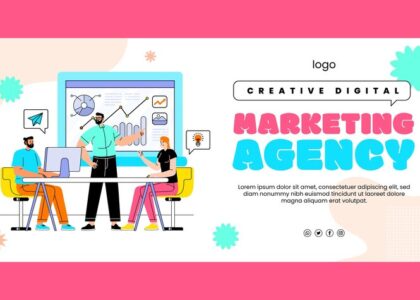Introduction
Table of Contents
Quick Career Progress Climbing the corporate ladder isn’t the only thing that makes a career advance; you also need to continuously learn new skills, develop your abilities, and take advantage of opportunities that fit your goals. Career growth is crucial for long-term success and job happiness in today’s cutthroat labor market. Strategic career advancement can have a significant impact on your future, regardless of your goals—be they a promotion, a move into leadership, or the pursuit of new professional opportunities.
Understanding your objectives, actively developing your skill set, and remaining flexible in response to market movements are all necessary for navigating professional advancement. Staying current is essential given how quickly technology and employment requirements are changing. You may increase your chances of success by taking a proactive approach to learning and cultivating a growth mindset.
Quick Career Progress This book concentrates on tried-and-true methods for quickening the advancement of your career, ranging from networking and mentoring to personal branding and job advancement. You can establish yourself as a significant asset in your industry and take advantage of fresh prospects for real professional growth by becoming an expert in these techniques. This journey is all about empowering yourself to reach your greatest potential, regardless of whether you’re just starting out or trying to advance in your profession.
The Significance of Professional Development
Quick Career Progress A key component of professional development that promotes long-term success and personal improvement is career advancement. It involves more than just receiving promotions; it also involves developing new abilities, broadening your area of knowledge, and continuously changing in your career. In today’s fiercely competitive employment market, staying still could put you behind. By actively seeking career growth, you can maintain your relevance, competitiveness, and readiness for any new chances that may arise.
Quick Career Progress Job happiness is also intimately related to career advancement. Motivated, involved, and productive workers are more likely to believe that their careers are developing and progressing. This sense of accomplishment increases self-esteem and provides access to better employment opportunities, more satisfying responsibilities, and increased industry recognition.
Moreover, expanding your professional network is greatly aided byQuick Career Progress. As you move up the professional ladder, you inevitably meet more powerful people, which creates fresh chances for mentoring and teamwork. Putting money into your professional growth helps you personally and also benefits the companies you work for because of the improved leadership and abilities you will be able to provide. To put it simply, reaching your full professional potential and landing a more fulfilling work are mostly dependent on career advancement.
Clearly Defined and Measurable Career Objectives

Establishing measurable and unambiguous job objectives is the first step toward success in any professional endeavor. Without clear goals, job advancement may become aimless, frustrating, and stagnant. With direction from well-defined goals, you can concentrate your energy on the things that really count. They serve as a road map, pointing you in the direction of particular benchmarks that correspond with your long-term professional goals.
Career goals must be SMART (Specific, Measurable, Achievable, Relevant, and Time-bound) in order to be effective. Whether your objective is to learn a new skill, advance in your career, or build your professional network, having specific goals will help you stay focused and on track. Setting and maintaining measurable goals helps you monitor your progress and maintain motivation. While relevant goals are in line with your larger career aspirations, achievable goals guarantee that your targets are reasonable given your existing resources and limits. Lastly, having time-bound objectives makes you feel pressed for time and encourages you to stick with it.Quick Career Progress
You can break down more ambitious plans into more manageable chunks by setting quantifiable goals. This systematic strategy keeps your motivation high as you work toward accomplishing your larger career objectives by making progress easy to assess and allowing you to celebrate minor victories along the way.Quick Career Progress
The Benefits of Ongoing Education
Continuous learning is essential to remaining competitive and relevant in the quickly changing employment environment of today. Emerging trends, changing market demands, and technological breakthroughs are all driving ongoing change in the workplace. Professionals need to embrace lifelong learning as an essential component of their job growth in order to stay up to date. You can develop new talents and improve your current ones through continuous learning, which increases your adaptability and versatility in your line of work.
Beyond only developing new skills, constant learning has several advantages. It encourages creativity and originality, giving you the ability to approach problems from new angles and come up with creative solutions. Acquiring knowledge through various means such as self-directed study, workshops, online courses, or formal education is beneficial for one’s professional and personal development.
Additionally, businesses respect workers who are dedicated to their professional growth. Being proactive in your learning process demonstrates your commitment to your work and your flexibility in taking on new tasks and responsibilities. It also provides access to fresh possibilities like job shifts, leadership roles, and promotions Quick Career Progress.
For More Information Click Here
Networking: Establishing Valuable Professional Connections
Building genuine professional connections through networking can lead to new chances and is a valuable strategy for job advancement. In the globalized world of today, relationships are frequently more significant than knowledge. Building real relationships with people who can provide career-long support, mentoring, and collaboration is more important to effective networking than simply exchanging business cards.
By using strategic networking, you may access a multitude of resources and expertise that can help you grow in your line of work. You may stay up to date on the newest trends and advancements in your sector by attending events, interacting with peers in the same field, and joining online communities. These activities not only help you to widen your network. These connections may result in project collaborations, job recommendations, and insightful information that is frequently unavailable through conventional routes.
Networking is also a two-way street. It’s critical to share your knowledge and offer assistance when you develop partnerships
Looking for Guidance
Quick Career Progress A vital first step for anyone hoping to boost their job advancement is to look for mentorship. A mentor helps you overcome obstacles and grasp possibilities with more assurance by offering insightful advice, encouragement, and support based on their own experiences. Whether you’re a novice in your industry or a seasoned expert looking to advance, a mentor can provide you with personalised guidance that matches your objectives.
A competent mentor not only imparts knowledge but also provides insight into overcoming challenges and maximizing talents. They may guide you through typical pitfall avoidance, improve your decision-making, and introduce you to important industry networks. Additionally, mentors frequently offer candid criticism that enables you to see your blind spots and potential growth areas—a crucial component of both professional and personal development.
It takes initiative and clarity of purpose to choose a mentor. Find possible mentors in your business or network who have accomplished your desired goals. Make a specific request of them and be ready to explain your objectives and the ways in which you think their advice could be helpful.
A partnership of mutual benefit is mentoring. Even if you benefit from your mentor’s experience, you can make the relationship more meaningful for both of you by contributing your own knowledge, assistance, or new viewpoints.Quick Career Progress
For More Information Click Here
Developing Your Own Brand
Developing a personal brand is crucial to being noticed in the cutthroat job market of today. Your distinct combination of abilities, experiences, and values that make you stand out from the crowd is your personal brand, which is how you show yourself to the outside world. It’s what makes you memorable and what comes to mind when someone hears your name. A powerful personal brand may alter everything, whether you’re looking for a new career, searching for a promotion, or positioning yourself as an industry leader.
The first step in developing a personal brand is identifying your interests, strengths, and desired reputation. Maintaining consistency is essential; your online and physical personas should represent your brand. This covers your online persona on social media, your business accounts on sites like LinkedIn, and the interactions and dialogue you have with other people. You may establish yourself as a thought leader in your sector by contributing to industry discussions, sharing insightful information, and sharing helpful content.
A clearly defined personal brand increases credibility and visibility while also fostering trust. It helps you make a lasting impression on clients, employers, and colleagues and helps you draw chances that support your career goals. Putting money into your personal brand is an investment in your long-term success in a world where reputation is important.
The Significance of Professional Development

A key element of both professional success and personal fulfilment is career growth. Climbing the corporate ladder isn’t the only thing to focus on—you also need to keep learning new things, grow professionally, and take advantage of chances that fit your objectives. The importance of career advancement stems from its capacity to raise earning potential, improve job satisfaction, and create new prospects Quick Career Progress.
As your Quick Career Progress, you have the opportunity to not only take on greater responsibility and notoriety but also make a bigger impact on your profession and your organization. Setting and completing goals, seeking lifelong learning, and accepting novel challenges that take you outside of your comfort zone are all necessary for career advancement. By being proactive, you can position yourself as a valuable asset to employers and stay relevant in a work market that is changing quickly.
Furthermore, professional development and personal growth go hand in hand. It gives one a sense of success, increases confidence, and expands one’s professional network. Your professional journey will be exciting and enjoyable if you actively pursue career growth, which will ultimately lead to a more successful and meaningful career.
Work-Life Harmony to Avoid Burnout
Maintaining general wellbeing and avoiding burnout require striking a balance between work and personal obligations. In the modern world, when job obligations frequently interfere with personal time, striking this balance can be difficult but crucial. Maintaining a healthy work-life balance might help you feel more satisfied with your career and have better mental health by preventing your personal or professional obligations from interfering.
Setting up boundaries between work and personal time is essential to achieving an effective work-life balance. This entails setting and maintaining precise work hours in addition to designating specific areas for work and leisure. Making self-care activities a priority, such as physical activity, hobbies, and spending time with loved ones, can help greatly lower stress and prevent burnout.
The two most important tactics for preserving balance are controlling workload and avoiding overcommitting. To prevent overcommitting oneself, learn to assign duties to others and learn when to say no. Maintaining homeostasis can also be aided by periodically reviewing and modifying your schedule to meet your personal and professional obligations.
Maintaining a balanced lifestyle improves performance and productivity while paving the way for a longer-lasting and more satisfying career. A balanced lifestyle that prioritizes your well-being will ultimately result in a career that is healthier, happier, and more productive.
Reviewing and Modifying Your Career Plan Frequently
Maintaining your focus on your professional objectives requires that you regularly examine and modify your career strategy. A career strategy that made sense a few years ago might not fit your current goals or the state of the market because the employment market and industry trends are always changing. Regular evaluations assist in ensuring that your career strategy stays in line with your changing objectives and outside circumstances.
Regular self-evaluation and goal-setting are essential components of a well-maintained career plan. Make time to review your Quick Career Progress, reevaluate your abilities, and consider your accomplishments. Think about how your career trajectory will be affected by changes in your industry, such as new technology or changes in demand. To remain current and competitive, modify your objectives and tactics in light of these observations.
FAQ: 20 Frequently Asked Questions on Advancing Your Career
Career advancement: what is it?
Quick Career Progress of moving up the professional ladder through promotions, skill improvement, and more responsibilities is known as career advancement. It entails climbing the professional ladder or reaching noteworthy industry benchmarks.
Why is it crucial to advance in your career?
Achieving long-term job happiness, raising income potential, and fostering personal development all depend on career promotion. It leads to more possibilities and professional success by keeping you competitive and current in your field.Quick Career Progress
How do I make meaningful career goals?

Quick Career Progress Establish SMART objectives: Time-bound, Relevant, Specific, Measurable, and Achievable. Establish dates for completion, make sure your goals are reasonable, and clearly state your objectives and how you plan to monitor progress toward them.
What are some tactics for developing a career?
In order to show your ability and readiness for progression, some strategies include taking on new tasks, networking, obtaining more certifications, establishing a strong personal brand, seeking mentorship, and never stopping learning.
How crucial is networking to advancing in your career?
Building meaningful professional contacts, learning about the sector, and taking advantage of new chances are all made possible by networking. Successful networking can result in partnerships, job recommendations, and mentoring that advance careers.Quick Career Progress
What part does mentoring play in advancing one’s Quick Career Progress?
Mentoring offers direction, counsel, and assistance from seasoned experts. Mentors share their knowledge and experience to help you overcome obstacles, make wise decisions, and advance your career Quick Career Progress.
How can I further my career while juggling my personal and professional lives?
Establishing limits, using your time wisely, putting self-care first, and abstaining from over committing will help you strike a balance between work and life. Reevaluate and tweak your schedule often to keep things in balance and avoid burnout Quick Career Progress.
What are some typical blunders to avoid in career development?
Common blunders include failing to network, ignoring skill improvement, rejecting feedback, not setting clear goals, and failing to adjust to changes in the market. Continue to be proactive and receptive to learning to avoid these traps.
How can I advance my profession through ongoing education?
Ongoing education improves your skills, keeps you abreast of market trends, and increases your ability to adjust to changing circumstances. It boosts your prospects of work advancement by presenting you as an informed and aggressive professional.
Why is personal branding important, and what does it entail?
Your professional presentation is a part of your personal branding. It entails exhibiting your abilities, principles, and distinctive features. Having a great personal brand makes you stand out, draws in opportunities, and establishes your authority in your industry.Quick Career Progress
How can I locate the ideal career mentor?
Look for people that have success and experience in the sector you want to work in. These people could be your possible mentors. Make a specific request of them, explaining how their advice will help you reach your professional objectives.Quick Career Progress
How can I maintain my motivation when changing careers?
By establishing attainable objectives, asking peers or mentors for help, keeping an optimistic outlook, and concentrating on the long-term advantages of the change, you can stay motivated. Reward minor victories to maintain your drive.Quick Career Progress
What are some powerful methods for showcasing my abilities and accomplishments?
To highlight your accomplishments and skills, use a professionally written CV, professional profiles, and a personal website. To gain more awareness, publicize your accomplishments through industry journals, social media, and networking events.
How often should my career plan be reviewed and updated?
Quick Career Progress At least once a year, or more frequently if there are major changes like new industry trends, personal objectives, or work changes, review and revise your career plan. This makes it more likely that your plan will stay current and in line with your goals.
What are some indicators that my career plan has to be modified?
Indications may include changes in industry trends, job unhappiness, stagnation in your current work, or a lack of prospects for advancement. If your goals no longer fit your needs or desires for your career, make adjustments to your career plan.
How can I deal with the stress of advancing in my Quick Career Progress?
Time management techniques, realistic goal-setting, asking for help from peers or mentors, participating in stress-relieving activities, and upholding a good work-life balance are all effective ways to handle stress.
What part does receiving feedback play in advancing a Quick Career Progress?
Feedback gives you information about how you’re doing and where you can become better. You may improve your abilities, correct your flaws, and show that you are committed to improvement by using constructive criticism, all of which can help you advance in your profession.
How can I use social media to further my Quick Career Progress?
Develop your professional brand on social media by interacting with thought leaders in the field, exchanging insightful material, and participating in pertinent conversations. Sites like LinkedIn are very helpful for networking and exhibiting your skills.
Which are the best strategies to acquire new skills for advancing in your Quick Career Progress?
Follow up on more education, training, and certifications. To keep your skills up to date and competitive, participate in conferences, webinars, workshops, and on-the-job training.
How can I sustain the momentum of my job advancement over time?
Sustain momentum by establishing recurring objectives for your career, keeping up with developments in the field, getting regular feedback, and persistently looking for ways to improve. To continue moving forward in your profession, periodically review and modify your plans.






